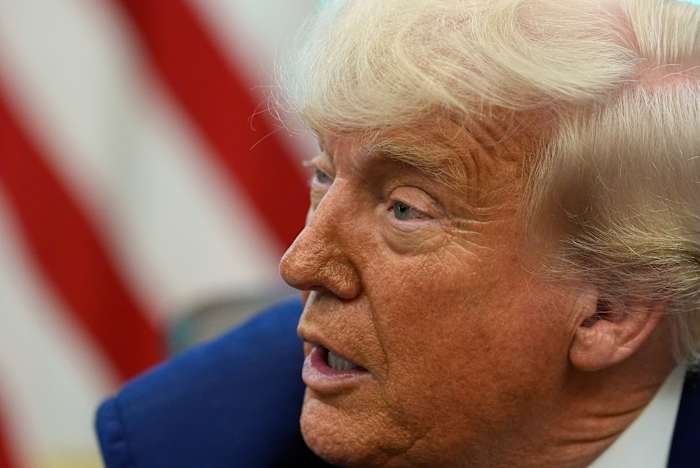In a move stirring national headlines and local conversations in the City Beautiful, the Trump administration has petitioned the Supreme Court to prevent a government watchdog from accessing key documents from the Department of Government Efficiency (DOGE), led by Elon Musk. The case, which centers on transparency and oversight, could have significant implications for Orlando residents who rely on efficient government services and open governance. As this legal drama unfolds, Daily Orlando News breaks down what’s at stake, why it matters locally, and how Orlandoans could be affected.
Background: The Battle Over DOGE Documents
The Department of Government Efficiency, or DOGE, was established with the mission to streamline federal operations and improve public service delivery. With Elon Musk at the helm, DOGE has been a lightning rod for both praise and criticism, especially given its ambitious goals and unconventional approach.
Recently, a government watchdog group filed a lawsuit seeking access to internal documents detailing DOGE’s processes, decision-making, and expenditures. Lower courts ruled in favor of the watchdog, ordering DOGE to release the requested information. In response, the Trump administration appealed to the Supreme Court, seeking to block these orders and keep the documents confidential.
This legal tug-of-war raises important questions about transparency, accountability, and the balance of power in government—a debate with direct consequences for Orlando’s taxpayers and civic leaders.
Transparency vs. Executive Privilege: The Legal Arguments
At the heart of the case is the tension between the public’s right to know and the executive branch’s claim to confidentiality. The watchdog group argues that access to DOGE’s documents is essential for holding public officials accountable and ensuring government programs benefit communities like Orlando.
On the other hand, the Trump administration contends that releasing these documents could compromise sensitive government operations and undermine executive privilege. They argue that some degree of confidentiality is necessary for candid decision-making, especially in departments tasked with reforming government operations.
Legal experts in Orlando note that the Supreme Court’s decision could set a precedent affecting not only federal agencies but also local government transparency standards. This is especially relevant as the City of Orlando continues to modernize its own public services and seeks to build trust with residents.
Impacts on Orlando: Why Local Residents Should Care
While the DOGE case may seem distant from everyday life in Orlando, its outcome could ripple through local government operations. Here’s how:
- Government Accountability: If watchdogs are denied access to key documents, it could become harder for Orlando residents and journalists to obtain information about how public funds are used.
- Public Trust: Orlando has a vibrant civic community that values openness. A Supreme Court ruling that limits transparency might erode confidence in both federal and local agencies.
- Policy Innovation: DOGE’s work in government efficiency is being closely watched by city officials in Orlando, who often look to federal reforms for inspiration. Access to DOGE’s records could offer insights for improving local services, from transportation to utilities.
- Legal Precedent: The outcome could influence future public records requests in Florida, potentially impacting how Orlando citizens interact with their own government.
For Orlandoans, the case is more than a political spectacle—it’s a bellwether for the future of open government in Central Florida.
Elon Musk’s Role and the Public Spotlight
Elon Musk’s leadership of DOGE has added another layer of intrigue to the legal battle. Known for his high-profile ventures and outspoken nature, Musk’s involvement has attracted intense media attention and public scrutiny. Supporters argue that his innovative mindset could revolutionize government efficiency, while critics worry about a lack of oversight and transparency.
In Orlando, where technology hubs and startups are on the rise, Musk’s approach to government reform is both inspiring and controversial. City leaders and local entrepreneurs are paying close attention to whether innovation in government can be achieved without sacrificing accountability—a lesson that could shape the next wave of public-private partnerships in Orlando.
What Happens Next? The Road Ahead
The Supreme Court has not yet decided whether it will take up the case. If it does, the justices will weigh the constitutional principles of transparency and executive privilege, with arguments likely to be closely watched by legal scholars, advocacy groups, and government officials nationwide.
For now, the documents remain sealed, but the debate over access continues to energize Orlando’s civic community. Local watchdog organizations and transparency advocates are urging residents to stay informed and engaged, emphasizing that the outcome could shape the future of government oversight in the city and beyond.
Conclusion: Your Voice Matters
The Trump administration’s bid to block access to DOGE documents is more than a national news story—it’s a local issue with real consequences for Orlando’s democracy, accountability, and innovation. As the Supreme Court considers its next steps, we want to hear from you:
Do you think government watchdogs should have access to DOGE’s documents? How important is transparency to you as an Orlando resident? Share your thoughts in the comments below and join the conversation about the future of open government in our city!
















